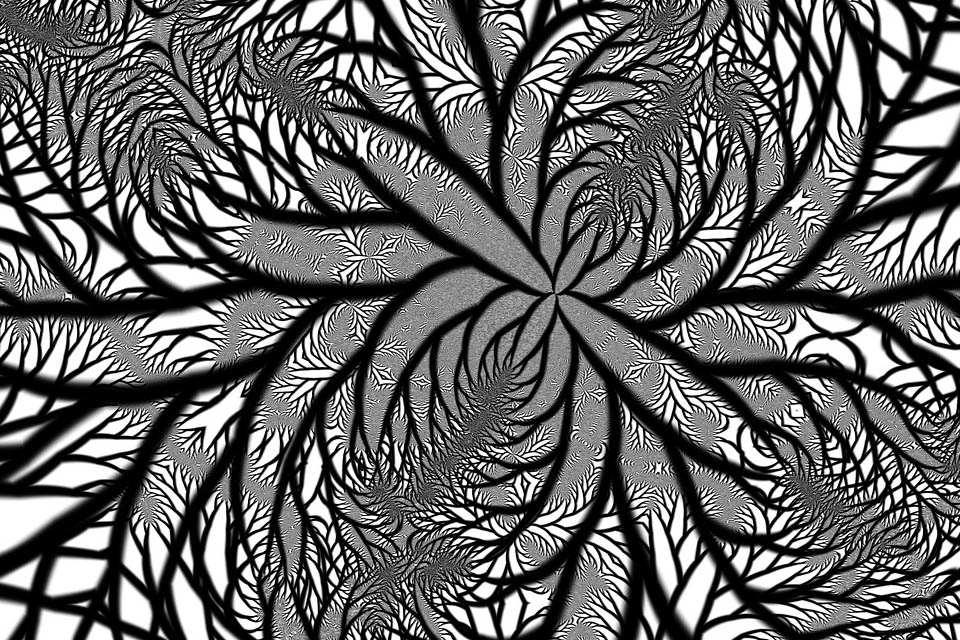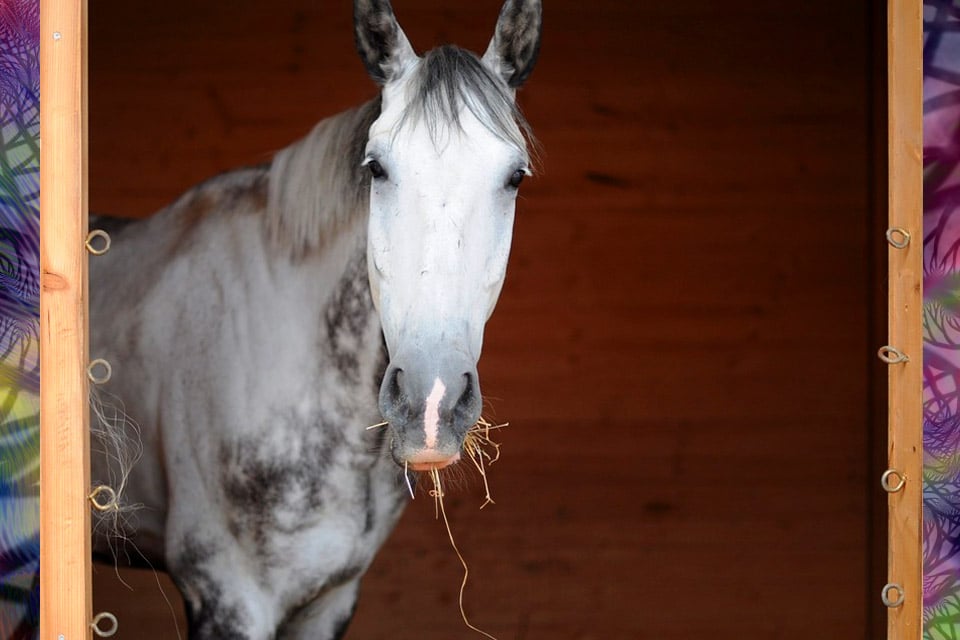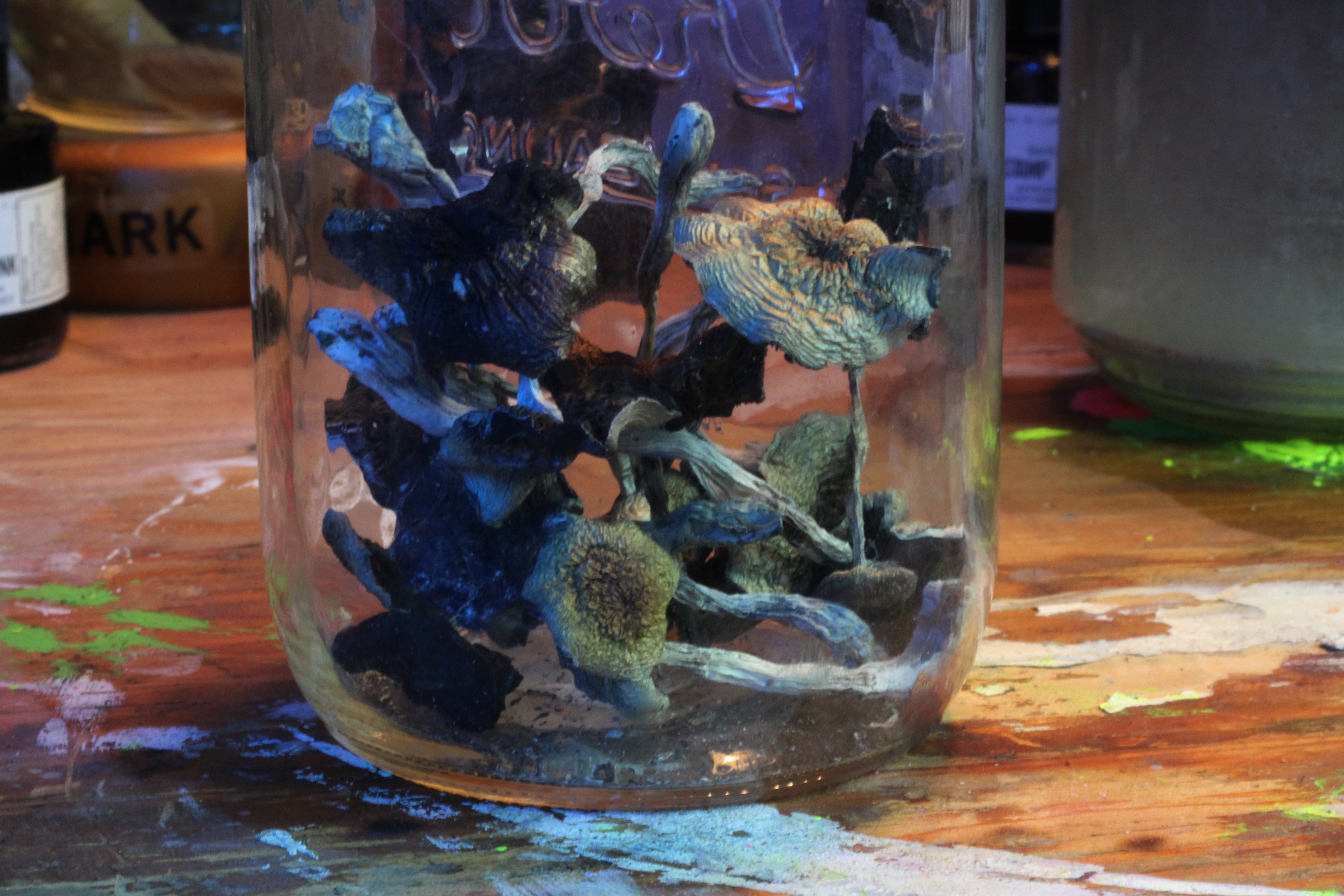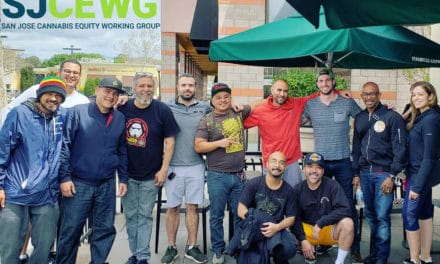One meme left over from the psychedelic 60’s is the idea of the “bad trip,” a psychedelic experience gone awry that is freaky, terrifying, and might even make you act psychotic. While it’s true that all of these things are technically possible, there are numerous ways to totally avoid or greatly mitigate these risks with proper intention, preparation, mindset, and setting. More importantly, these experiences are not necessarily bad. In fact, challenging psychedelic experiences held in the proper container can be among the most profound and healing experiences in a person’s life. Often it is only through facing our deepest fears and shadows that the greatest personal breakthroughs can occur.
The value of these “bad trips” is one of the predominant themes in Richard Haight’s new book The Psychedelic Path, where he describes ordeal experiences on psilocybin mushrooms in great detail, along with other anecdotes about ayahuasca and Salvia divinorum. Having gone through similar terrifying-but-healing experiences myself, I strongly resonated with Richard’s stories and am excited to share our conversation with you.
Thank you again for speaking with us, Richard. The next thing I want to talk about is one of the biggest takeaways from your book: the value of the “bad trip.” Many of the experiences you describe, particularly with psilocybin, were extremely uncomfortable, harrowing, and seemingly life-threatening. A lot of people would call those things “bad trips” and say “I don’t want an experience like that, I want something that’s recreational or purely enlightening.” I really appreciated your ‘brave warrior’ mindset about stepping into these experiences as valuable ordeals. Could you speak on that?
I’m not sure of the extent to which most readers will value that, because to be honest, they are terrifying experiences. But I’m reminded of something that my martial arts teacher once told me. He said, “I always think of what my opponent does as a reflection of the energy that I am giving off”- because they are acting within context even if they don’t know that they are. That person is your teacher. From there, I just began accepting that every experience has potentially useful information for me to use in refining what’s going on within me. I think that’s just a healthy way of looking at everything, an opportunity.
When you have a bad trip, it is revealing stuff that you probably didn’t want to look at- which is exactly the stuff you probably need to be looking at. That’s how I went into it- in fact, in my case I was intending that. It was intentional to see that stuff, and I’m fortunate that I had that trip. Unpleasant? Yes, undeniably so, but I have to say that the experience of the trip and the attitude and motivation going into it kind of peel away the forces that cover over that disharmony until you get to the very core. At that point, it releases and you see and understand so much of what’s motivating certain behaviors, actions, and responses within yourself- and with other people in your life, too.
I don’t think you can really get an authentic deeper connectivity or sense of oneness percolating throughout your life without dealing with that stuff first. You might have peak moments, but those peak moments can become suffering, because then your life is constantly juxtaposed to those peak moments. You feel like you’re just falling short, and say to yourself “Why can’t I get back there?” The reason you can’t get back there is those anchors of darkness within you that you have not wanted to look at. So if you want to rise up, first you gotta go down. It’s counterintuitive, but that’s the approach- and as it turns out, it works very well. It’s just extremely unpleasant! [laughs]
As Carl Jung said: “Shadow work is the path of the heart warrior.”
I’ve not read Carl Jung, but I’ve had a number of people recommend his work so I just purchased one of his books. In fact, it just came in so I’m looking forward to digging into that.
After reading about your first psilocybin experience, I was taken aback by the sheer terror involved [laughs] and I’ve been through that myself. For me, it was in college at something called the Sun God Festival, and I took a heroic dose of mushrooms and had my own journey of darkness and eventual redemption.
Were you with a group of people at the time?
Only with my roommate. I passed out multiple times and ended up hugging the toilet for a few hours just begging to live. It was the first time in my life I ever thought I was going to die, and I was saying “I want to live, I just want to live!” but then the thought came into the back of my head which was “Why? Why do I want to live, what am I going to do with life?” And just then, all of my true self, meaning and passion started flooding into me, and it was both the worst experience of my life and the best. I was just completely renewed with this deep sense of purpose and self that was rooted in the truth. I came away with this mantra of “Nothing matters!” which sounds nihilistic but in fact was grounded in this sense of everything being absolutely perfect as it is, and us having infinite creative choice within this field of perfection. But I had to purge all of the folderol first and face death. I mean, there’s something immensely valuable in a near death experience. It’s one of the few triggers of a true mystical experience- whether via deep meditation, near death, or psychedelics. Often when we take psychedelics and it’s intense, it feels like a near death experience even if it isn’t.

UCSD Sun God by Niki de Saint Phalle.
It’s almost impossible to avoid sometimes. The person that’s having the psychedelic experience believes that they are dying, and there’s nothing you can say to them to make them believe otherwise.
After reading the first account of your psilocybin experience, in the next chapter when you say “So I decided to do it again!” [laughs] I was like WOW this dude has balls! [laughs] So to turn that into a question, how do you make the decision of whether you’re called to another ordeal experience like this? What was it that made you say yes to psilocybin the other times? How do you discern that now, and moving forward in life?
I’m actually writing a book about that right now. I call it “the pull,” but its the result of achieving a certain oneness of the body and mind where the body can take over as a guidance system in your life.
For example, when I was young I was working in a horse corral. My family are horse ranchers; I was maybe 12 or 13 years old. I was working in the horse corral picking up the dung, and normally it’s a requirement that you remove the horse from the stall and put it to pasture so that you are not in any danger. Dumb kid in a hurry, I skipped that step, so I went into the corral, and the horse was at the other end eating its hay. So I went about my work not paying attention, sort of daydreaming. Suddenly this unexpected surge goes through my body and my body moves aside. The horse’s hoof just misses my head and flies past it and back again. I immediately turned around and whacked it with my rake and took it to pasture. I had no clue, consciously speaking, that that horse was so close and intending to kick me. How did my body do that? That’s an example of the body doing the movement.
The body is a lot more than that little conscious window of awareness through which we perceive the world. When you are able to trust the body sufficiently, that kind of movement and guidance can occur- or at certain peak moments, it might just happen unexpectedly. If you’ve ever had a clear spiritual guidance- like you’re hiking through the mountain and clearly you’re not supposed to go on that trail, you need to go on the other one- your body just stops and turns, like “What the heck is going on here? That wasn’t me!” That’s what I’m talking about. And that’s what guided my psychedelic process. That’s how I knew it was time to do it. It wasn’t really a decision, so much as agreeing with what the body was saying. It was clear that the body had already calculated out: this is the time, this is the way to do it. It really wasn’t, in that sense, a choice. It was an agreement maybe, but not really a choice.
The martial arts training that I talk about, that global awareness and becoming more in tune with the body’s awareness, allows for that kind of guidance system to occur. For most people, if I say “Trust your guidance” that equates to “Trust whatever you desire, or whatever you are thinking.” That’s not what I mean here at all. In a way, you almost have to have had one of these experiences to understand it. It’s a completely different animal than the way you normally make decisions. So I’m writing a book about how to develop that connection or unification of voice where that guidance system can come up and start taking a bigger load of your life experience on its shoulders. When that happens, it’s like a superhighway of spiritual awakening because then any experience can potentially be a learning experience, and it’s guided not by your ego or your desires or that sort of thing, but by this deeper guidance system.
Yeah, I see that. A life of deep intuition and of spontaneity coming from the unity of the heart, mind, and body, and whatever our extra senses are. That sounds like what you were describing in our last conversation as the “razor’s edge”- to be in the center of that network, identified not just with a thought or an emotion or what the body is feeling, but to sort of ride that center line between all of it with a kind of meta-awareness.
Yes, you you have to set aside your likes and dislikes and preconceived notions, because all of that stuff is a blockage for our deeper guidance system. It covers it over and dulls it all down, and you just have to start saying “Ok, I understand that I like this and I like that, but right now is not the time for likes.” You start tossing biases away and find out what really needs to happen. There’s an attitude of tossing everything on the surface aside. It’s just like anything worth doing- you have to dedicate your time to it; it’s a process.
Especially in this culture where we’re conditioned to identify with our desires.
Instant gratification, instant results. One of the things that I think is very valuable about meditation is that you have to keep yourself “in process.” This brings about the capacity to follow through, which a lot of people don’t have. Spiritual awakening is the awakening of the awareness that the individuated self is not the ultimate truth- it allows for functionality in the world, but there really isn’t a separation between you and everything else. Once that awareness exists, service is the only answer. You start doing what you can to help everybody and everything to be a little bit more happy and fulfilled. But to get to this point requires a kind of follow through, the kind that’s almost like a baby learning to walk. It’s not willful per se, it just keeps doing what it does. There’s persistence. It’s not thinking, “Hmm, I’ll get up and walk again.” It just gets up and walks.
Meditation does that. If you commit to meditating for 10 minutes a day, regardless of how tired you are, it brings about a refinement of character and the ability to follow through. That is pure gold.
We are very grateful to Richard for sharing his insights with us. Check out our first interview with Richard here.












